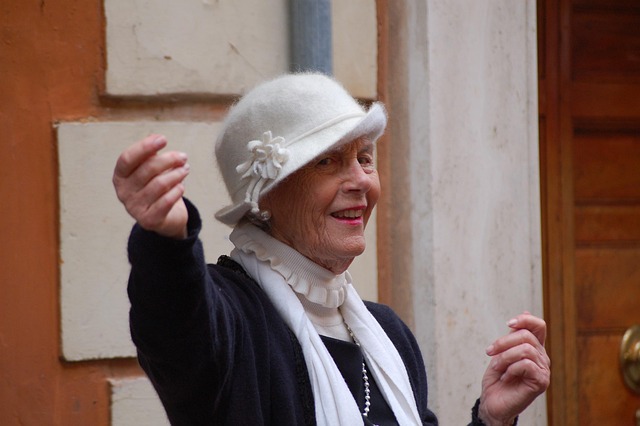In Cleveland, OH, elderly resident safety is a complex issue influenced by urban factors like bustling streets, varying healthcare access, and diverse neighborhoods. Social isolation increases emergency response times. The city's cultural tapestry requires tailored safety plans. Local resources such as senior centers and volunteer groups are vital in mitigating risks and offering essential services. By understanding Cleveland-specific considerations, families can create comprehensive home safety plans, including risk assessments, easy emergency contacts, and updated medical information. A robust communication system, community support networks, and access to quality healthcare services enhance the safety and independence of elderly residents in Cleveland, OH.
Keeping your elderly loved ones safe is a top priority, especially in a bustling city like Cleveland, OH. This comprehensive guide equips families with the tools to navigate the unique challenges of senior safety in Cleveland. We’ll walk you through creating a robust home safety plan tailored to their needs, explore essential emergency response strategies, and highlight community resources supporting the elderly population. Ensure peace of mind by empowering yourself and your loved ones with these valuable insights specific to Cleveland, OH.
Understanding the Unique Challenges of Elderly Safety in Cleveland, OH
In Cleveland, OH, ensuring the safety of elderly residents is a multifaceted challenge due to various factors unique to the city and its population. The urban landscape, with its bustling streets and diverse neighborhoods, presents risks that may be different from rural areas. Access to healthcare services and emergency response times can vary significantly across different districts in Cleveland, impacting the safety net for older adults. Additionally, social isolation is a pressing issue; many elderly residents live alone, which can lead to delayed responses during emergencies or even neglect if adequate support systems are not in place.
Cleveland’s diverse cultural tapestry also plays a role in understanding and addressing these challenges. Family dynamics and caregiving arrangements vary widely among different communities, requiring tailored safety plans. Local resources, such as senior centers, community organizations, and volunteer groups, play a crucial part in enhancing safety by providing social interaction, transportation, and access to vital services. By recognizing these unique aspects of Cleveland OH, families can better navigate the landscape of elderly safety planning, ensuring their loved ones are protected and supported within the specific context of the city.
Creating a Comprehensive Home Safety Plan for Your Loved One
Creating a comprehensive home safety plan is an essential step in ensuring the well-being of your loved ones, especially as they age. In Cleveland, OH, where older adults may face unique challenges, a tailored strategy can make all the difference. Start by assessing your elderly relative’s daily routine and any potential hazards within their living space. Identify simple modifications like installing handrails on stairs or adding non-slip mats in bathrooms to prevent falls.
Additionally, consider their accessibility to essential services. Ensure they have easy access to emergency contacts and that their medical information is up-to-date. Regularly reviewing and updating this plan is vital as your loved one’s needs may change over time. By taking proactive measures, Cleveland residents can foster a safer environment for their aging family members, promoting independence and peace of mind.
Essential Components of an Effective Emergency Response Strategy
When crafting an effective emergency response strategy for elderly Cleveland, Ohio residents, several essential components come into play. Firstly, a comprehensive risk assessment is crucial to identify potential hazards specific to the city’s aging population. This includes evaluating the city’s infrastructure, weather patterns, and prevalent health concerns among seniors. For instance, Cleveland’s winter storms and flooding events necessitate strategies tailored to these risks.
Secondly, an efficient communication system is vital for rapid response. This involves establishing clear protocols for emergency alerts and updates, ensuring that elderly residents and their families have access to timely information. In Cleveland, utilizing local community centers, senior living facilities, and digital platforms can enhance reach and ensure everyone receives critical notifications promptly. Additionally, creating a dedicated support network comprising healthcare providers, fire departments, and volunteer groups will streamline assistance during emergencies, fostering a safer environment for the elderly population of Cleveland OH.
Community Resources and Support Systems for Cleveland's Elderly Population
Cleveland, OH, offers a variety of community resources and support systems tailored for its elderly residents. Local organizations, such as the Cleveland Senior Center and Area Agencies on Aging, provide essential services including social activities, transportation assistance, and nutrition programs. These initiatives not only enhance the quality of life but also offer much-needed companionship for seniors living alone.
Additionally, Cleveland’s robust network of volunteer groups and community healthcare providers ensures that elderly residents have access to vital health services and emotional support. Many organizations focus on fall prevention, home safety checks, and medication management—crucial aspects of maintaining independence and well-being among the city’s aging population.






